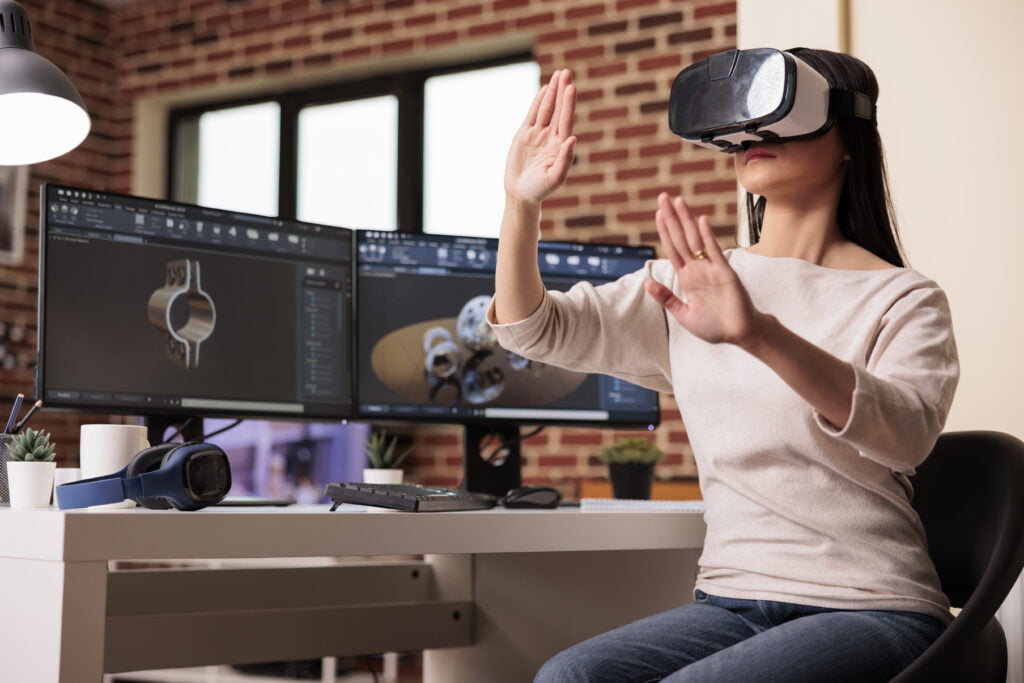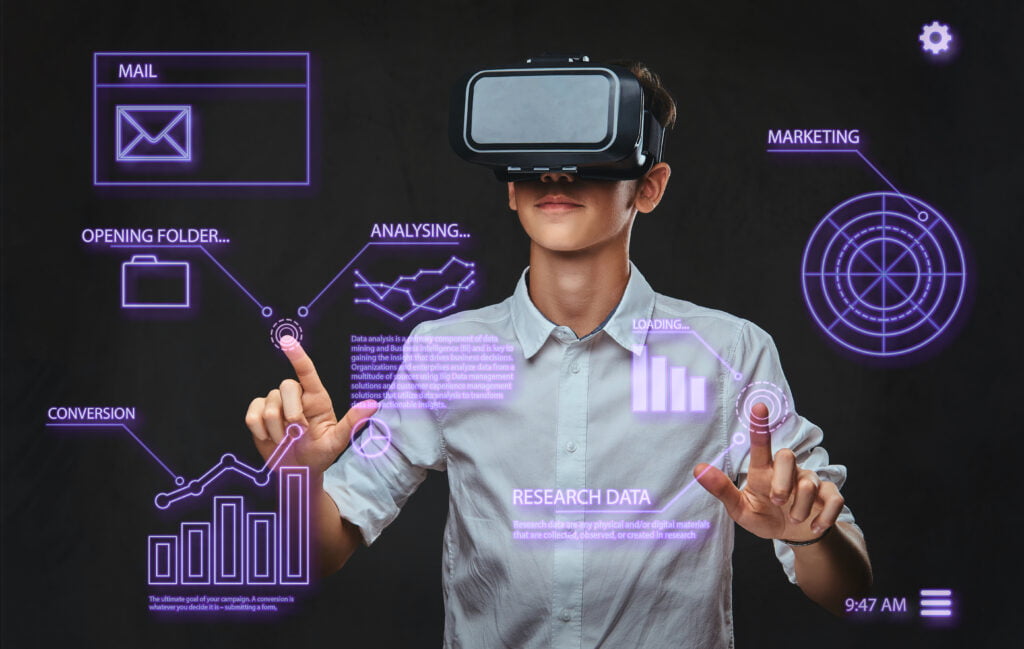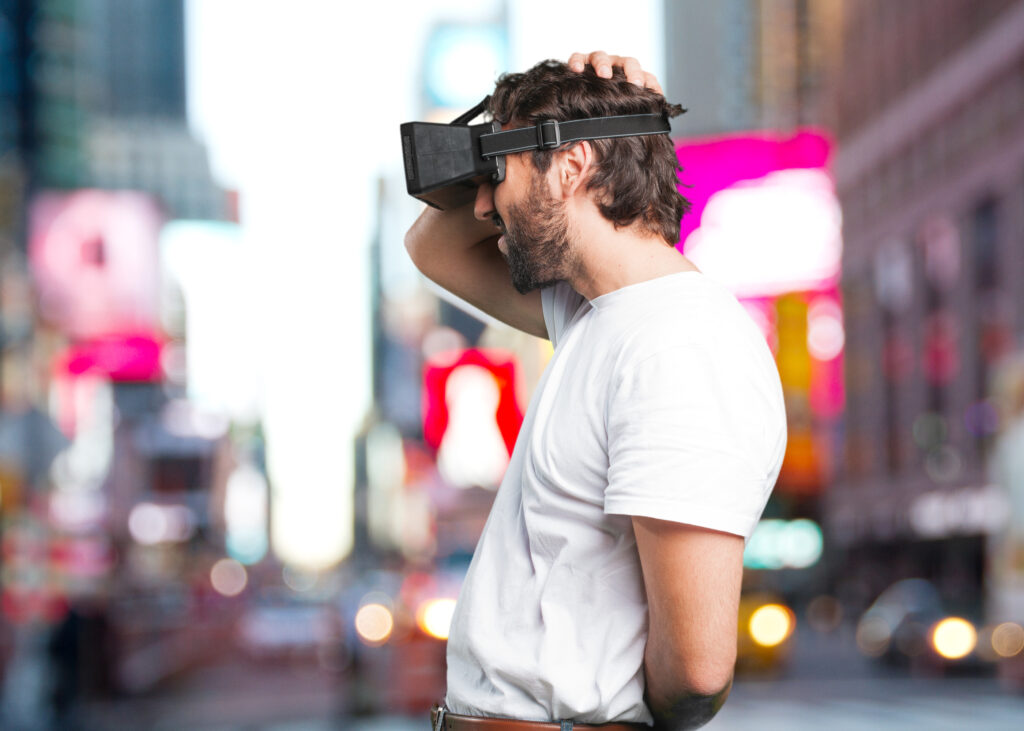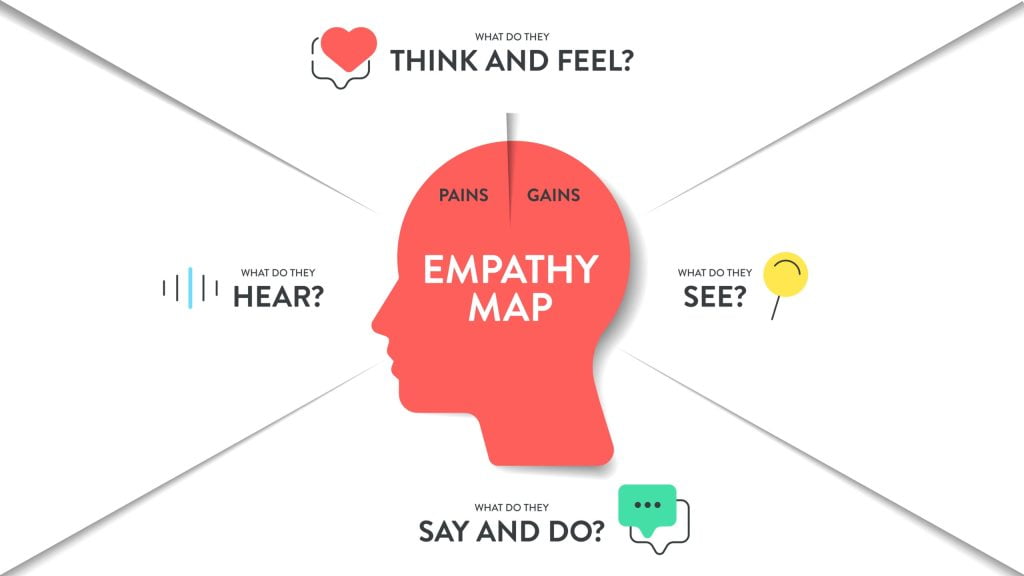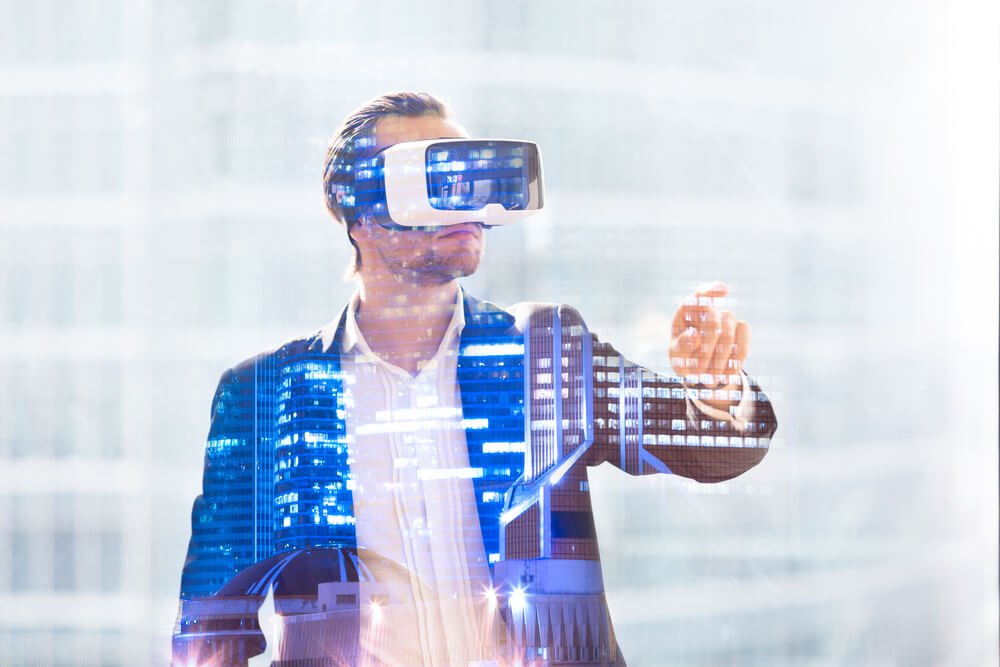Using Virtual Reality to Enhance Language Acquisition
Table of Contents:
Nowadays, knowledge of foreign languages is important for anyone wanting to be considered an educated person who is open to new challenges and willing to explore the world. However, modern technologies – including Virtual Reality – can be used to make the acquisition of foreign languages simpler and faster. So, how does VR support language learning? Does the use of this technology actually improve the expansion of knowledge? This article aims to answer these questions, so read on to find out.
Why learn a foreign language?
Knowledge of foreign languages guarantees many benefits in the modern world. First, it facilitates communication with people from other countries, allowing people to make contacts more easily and learn about different cultures, which can be very valuable for personal and professional purposes.
In addition, knowledge of foreign languages is also necessary to be able to comfortably travel and explore the world. Moreover, being a polyglot is a great asset in the job market. People who speak several languages can find a job a lot faster, and a well-paid one at that.
Without a doubt, learning languages also promotes personal development because it requires self-discipline and perseverance. In addition, learning a language can improve memory and concentration.
But what can be done to learn a foreign language quickly and become fluent in it?
Unlock the future with Mazer: Your innovation partner.
Learning foreign languages with the help of Virtual Reality
One of the easiest and most effective ways to learn a foreign language is to visit a place where the language is spoken daily. For example, a person who wants to learn English quickly can go to London, where they can talk in English every day and be surrounded by advertisements and signs in the language. However, not everyone can afford to do this. An alternative may be to use the language immersion method in a virtual environment.
VR (Virtual Reality) is a technology that allows users to move into a virtual world where they can function just like they do in the real world – moving around and interacting with others in intuitive and realistic ways. To experience Virtual Reality, a device such as a set of VR goggles or a VR headset with motion controllers is required. These devices usually connect to a computer or other hardware but can also be standalone consoles.
VR can provide a more realistic and immersive experience in terms of language learning. For example, users can listen to their chosen language in a natural context and learn how to use it in real-life situations.
Virtual Reality can also help people to practice conversations in a foreign language, allowing users to simulate real-life situations and conversations with native speakers.
Importantly, VR provides a safe and controlled language learning environment where users can practice the language without the pressure and stress that can accompany real-life situations encountered in traditional lessons.
What does learning a foreign language in the virtual world look like?
In Virtual Reality, there is no place for tedious memorization of material and no need to simply rote learn vocabulary. Instead, a person equipped with VR goggles learns through practice or by doing because VR applications dedicated to language learning generally consist of several realistic scenes in which the user is placed and must interact.
Such language courses deal with a different issue in each module, allowing users to work through specific scenes linked to different real-world situations. The user communicates with a virtual native speaker inside the application, practicing communication in a foreign language while also learning new grammatical structures and vocabulary related to the scene in which they are placed and effectively overcoming communication barriers.
Is Virtual Reality the Future of Language Learning?
All indications are that VR can significantly help individuals to acquire a new foreign language. Immersed in the virtual world, learners are not distracted, and this enhanced concentration is conducive to learning new linguistic topics. This is because there are no smartphones, social media, or other stimuli to draw their attention away from the subject at hand. Several studies have confirmed the effectiveness of learning in VR. One such study was conducted with the help of students from Stanford University and the Danish University of Technology. Its results showed that learning efficiency increases by as much as 76% when students learn in a virtual environment.
Therefore, it is clear that Virtual Reality technology has much to offer when it comes to language learning. It effectively supports the language acquisition process, increasing user satisfaction and encouraging them to work hard. It is fair to say that VR could be the future of language learning.
Read also: The Evolution Of ELearning And Its Next Big Step Forward
Why is it important to learn a foreign language?
Learning a foreign language facilitates communication with people from other countries, allowing for easier networking and learning about different cultures. It is also necessary for traveling and exploring the world, and is an asset in the job market. Additionally, learning a language can promote personal development and improve memory and concentration.
How can Virtual Reality support language learning?
Virtual Reality can provide a more realistic and immersive experience for language learners. It allows users to listen to their chosen language in a natural context and practice conversations in a safe and controlled environment. VR language courses generally consist of realistic scenes in which the user must interact with a virtual native speaker, learning new vocabulary and grammatical structures related to different real-world situations.
What does language learning in Virtual Reality look like?
In Virtual Reality, language learning is done through practice and interaction rather than tedious memorization of material. VR language courses consist of several realistic scenes in which the user is placed and must interact with a virtual native speaker, effectively overcoming communication barriers and improving language proficiency.
Is Virtual Reality an effective tool for language learning?
Yes, several studies have confirmed the effectiveness of learning a foreign language in Virtual Reality. VR technology effectively supports the language acquisition process by increasing user satisfaction and encouraging them to work hard. Learning efficiency can increase by as much as 76% when using VR for language learning.
Could Virtual Reality be the future of language learning?
It is fair to say that Virtual Reality technology has much to offer when it comes to language learning. VR effectively supports the language acquisition process, increasing user satisfaction and encouraging them to work hard. With its immersive and interactive nature, VR could be the future of language learning.
Unlock the future with Mazer: Your innovation partner.
Author: Rafał Siejca
Rafal has over twenty years of corporate experience, including roles at Millennium Bank, Comarch, and leading software teams at PZU, one of Europe’s largest insurance companies.As one of Poland’s few true VR experts with a decade of experience, he ensures timely, high-quality project delivery as CEO and CTO.


